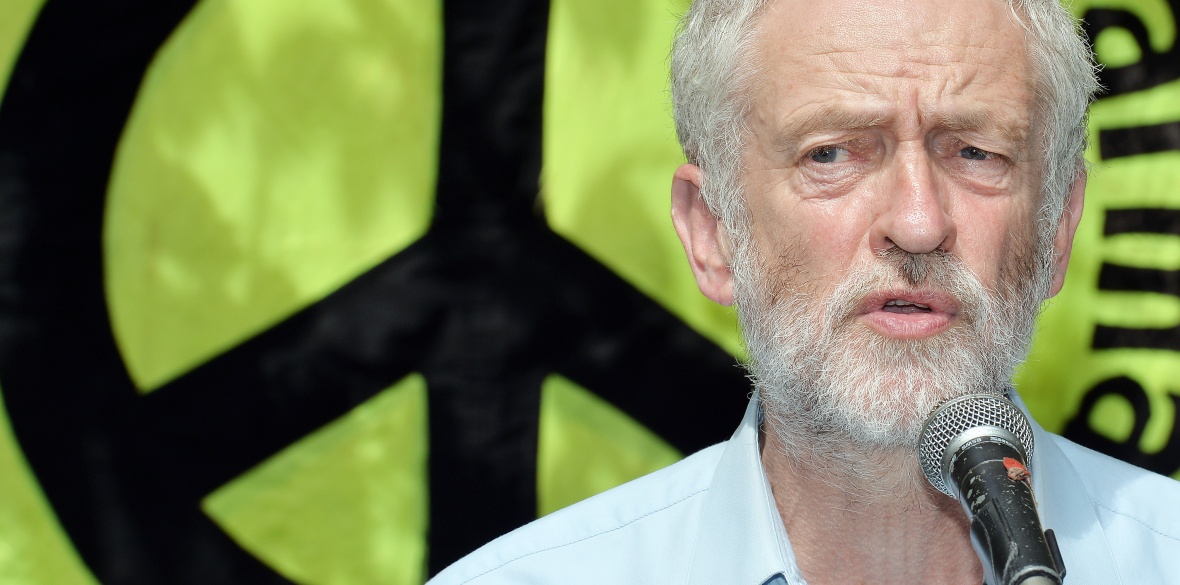This is the last article you can read this month
You can read more article this month
You can read more articles this month
Sorry your limit is up for this month
Reset on:
Please help support the Morning Star by subscribing here
ON Hiroshima Day each August we remember the anniversary of the atomic bombings of Hiroshima and Nagasaki, which indiscriminately killed over 100,000 civilians and military personnel.
Still today, many survivors live with the horrific humanitarian consequences, including cancer caused by the exposure to nuclear radiation.
We must never forget these atrocities, and we must never give up on the mission to rid our world of nuclear weapons.
Hiroshima Day is so important because it involves us collectively thinking about what a nuclear weapon actually is.
It is a weapon of mass destruction that if ever used can only kill large numbers of civilians.
If a nuclear war ever again took place, there would be mass destruction on both sides of the conflict and the humanitarian effects would be disastrous.
Within this context, for those of us campaigning for peace and disarmament we should see the 2021 review of the nuclear Non-Proliferation Treaty (NPT) as an opportunity to push our demands back up the agenda.

The coronavirus pandemic has demonstrated many things in a way that years of campaigning could not.
It has shown that people across our planet are interdependent on each other and there is no complete hiding place from a hitherto unknown virus.
Crucially it has shown how all the weapons in the world are useless in the face of a dangerous virus.
Alongside this, the economic impact of Covid-19 is enormous. Even in the better-off Western societies the inequalities have been stark. A huge increase in foodbank usage is but one example.
In poorer societies the extremely poor have become destitute and in the refugee camps around the world the fear of the unknown future is compounded by the fear of a virus with no defence.
With this new reality the next NPT will be held and we must put the issue of nuclear disarmament back on the agenda in the run-up to it.
The NPT, groundbreaking in the 1960s, was designed to create, ultimately, a world without nuclear weapons.
Obviously at the grand level of the elimination of nuclear weapons it has not succeeded, but enormous progress has been made.
I was part of a fascinating Zoom conference with the UN disarmament commissioner Itzumi Nakamitsec and Jonathan Granoff from the American Bar Association in discussion about global security.
Jonathan made the point that the NPT of 1968, done at an intense period of the cold war, had succeeded in creating nuclear-free zones in Africa, Latin America and central Asia.
The conference next year will be faced with huge issues. The six-party talks on Korea were at least engagement, and bizarre as the circumstances were, Donald Trump meeting Kim Jong Un was a form of progress and one hopes that there can be progress towards a nuclear-free Korean peninsula.
This would require a significant reduction in the tensions between the US and China, and Trump pulling back from his inflammatory anti-Chinese rhetoric when it comes to the coronavirus crisis.
The denuclearisation of the conflict between India and Pakistan must be accompanied by a peace process over Kashmir, and the rights and needs of the people of Kashmir must be secured as part of that process.
The Middle East Weapons of Mass Destruction Free Zone has been an active debating point at every NPT review conference since 2010 and is given more urgency by the Trump administration continuing to impose sanctions on Iran and end the multilateral agreement.
A strong declaration in support of the agreement will give impetus to a wider conference including Israel and its nuclear weapons.
Article VI of the NPT requires the five declared nuclear weapons states to take steps towards disarmament.
The UN general assembly has voted by a huge majority on the principle of ridding the world of nuclear weapons.
The baton now passes back to the five permanent members of the security council.
Despite the binding obligation under the NPT to prevent the spread of nuclear weapons and technology, many nuclear weapons states including Britain are failing to live up to this commitment and some are even attempting to undermine efforts.
This is hard to justify when we reflect on the horrors of nuclear mass destruction.
All the nuclear weapons states and members of the security council face huge economic issues, as does the whole world, post-Covid.
It would be a strange sense of priorities for all countries if — at a time of desperate need for an effective global health system, support for the 65 million refugees around the world and attention needed on the environment — the result was yet another round of rearmament.
Now more than ever we must redouble our efforts to build a world that genuinely meets the security needs of its people.
Poverty, human rights abuses, environmental destruction, cyber-terrorism and disease are all security threats. None of these issues can be solved by nuclear weapons or the threat of their use.
When the NPT reconvenes next year, surely there must be a realisation that an interdependent world needs to direct resources and skills at saving, preserving and extending life in addition to addressing the global environmental challenge.
Here in Britain the next strategic defence and security review is due this year, and we need to argue for an end to wasteful spending on nuclear weapons, through defence diversification and with greater public procurement in Britain to protect jobs and industries.
I first joined CND when I was 16 years old and I’m still a member today. It is up to all of us to ensure the debate in the year ahead is focused on peace and disarmament, and the need to rid the world of nuclear weapons for good.









